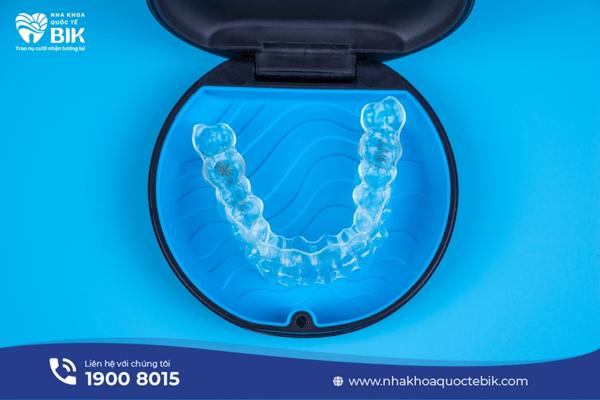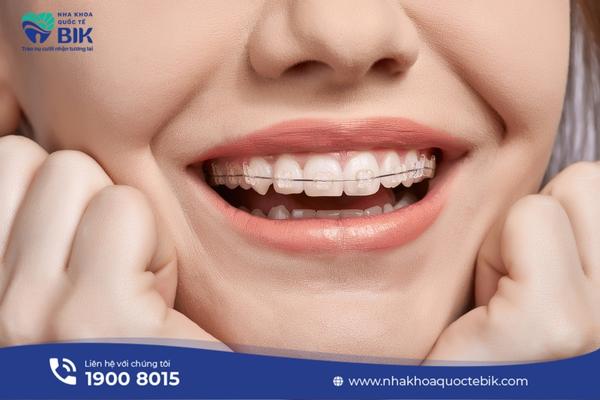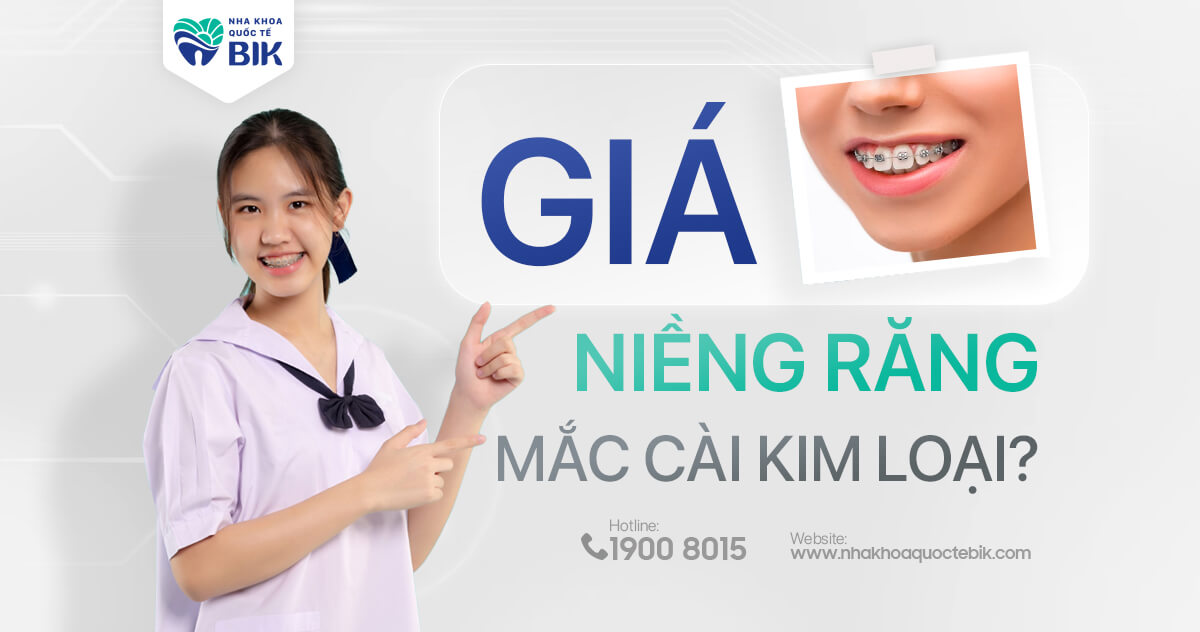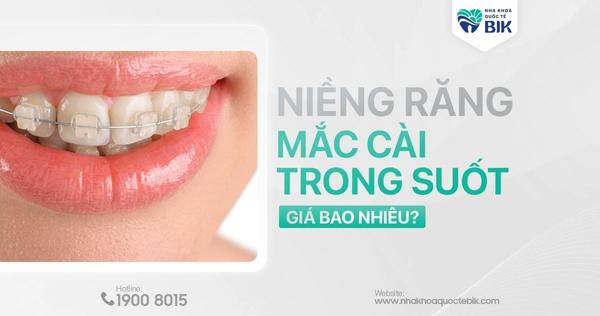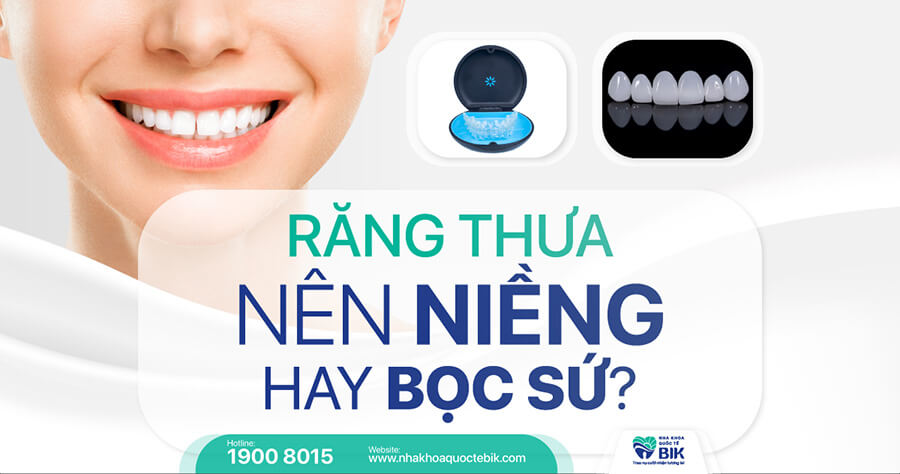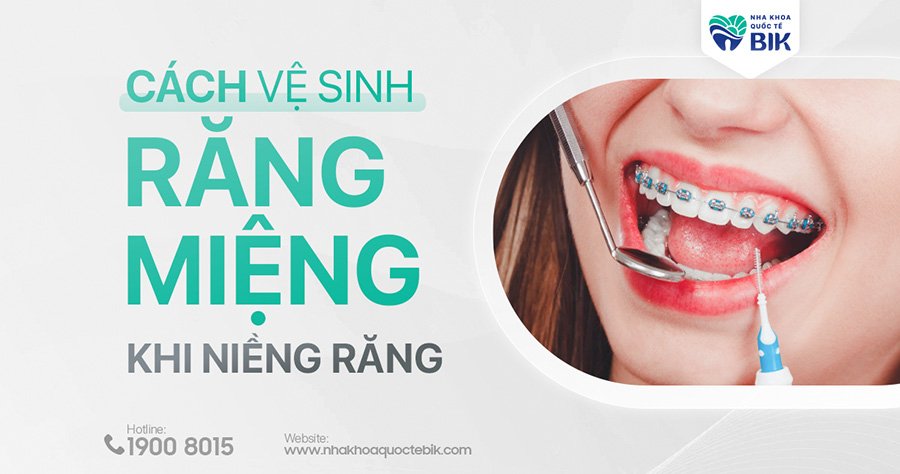Before and after braces, not only do they help your teeth become even and beautiful and have a standard bite, but they also significantly change your face. So how will facial features such as nose, chin, lips, cheeks… change after braces? The following article will answer this question in detail!
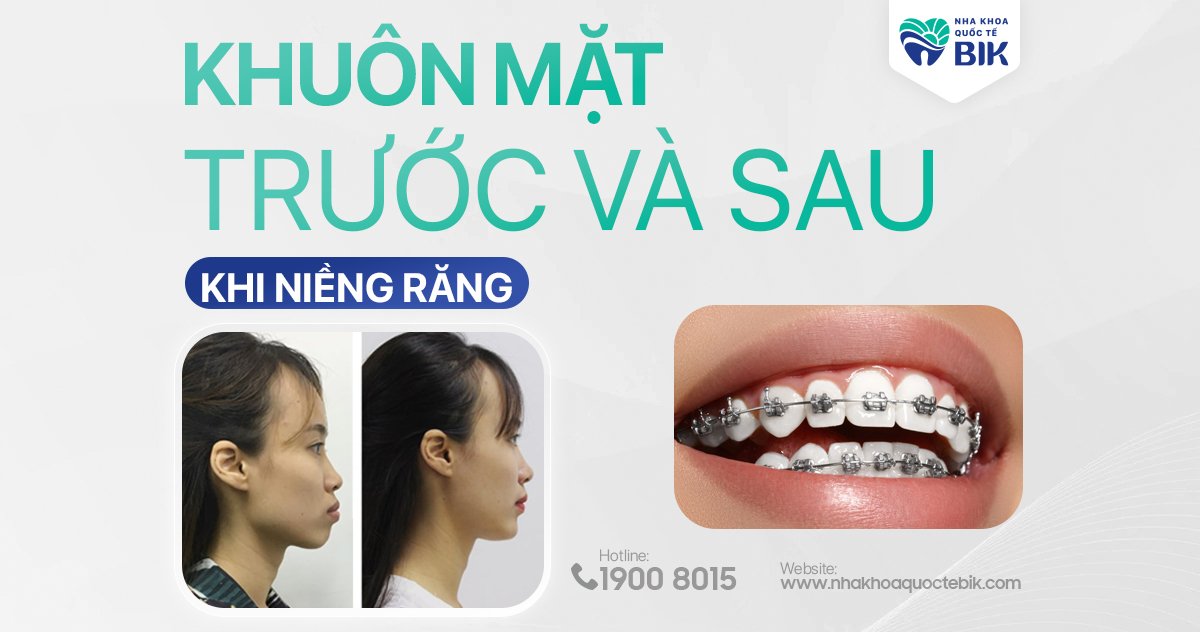
How do braces change your face before and after?
Do braces affect your face? During the braces process, the structure of your nose and chin does not actually change. However, through precise adjustments from your doctor, your teeth and bones will be rearranged to the correct position. When the braces are removed, your teeth will be more even and beautiful, helping your face become more balanced, creating a V-line feeling and a higher nose.
Therefore, before and after braces can change your face. Here are some important points to note about this change:…
Slimmer face
After braces, your face will become slimmer and more graceful due to the adjustment and rearrangement of the position of the teeth. This helps create a new face shape, helping many people feel more confident with their beauty.
Braces help create a V-line chin
Braces not only correct the position of each tooth but also affect the structure of the face. Especially in the case of correcting the overbite, raising the jaw, pulling back the lower jaw or making the lower teeth even, it will significantly improve the chin condition, creating a V-line chin shape, making the face more neat and harmonious.
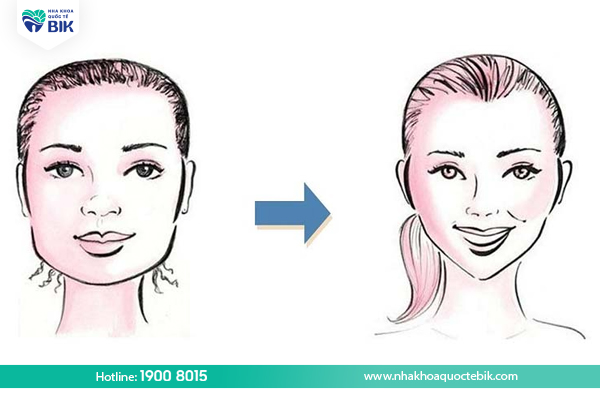
Braces make the nose feel higher
Another change when braces are used is a higher nose. When the teeth are properly adjusted, it can affect the structure of the lips and nose. There are cases where the upper lip touches the nose due to protruding teeth, but after braces, the lips are pulled in and create a higher and more elegant nose, making the face more delicate.
Changes in chewing ability before and after braces
The bite and jaw correlation play an important role in creating precise contact between the two jaws, helping the jaws move rhythmically to grind food. But the following dental problems can affect normal chewing function:
- Underbite: The lower teeth in front of the shield cover the upper teeth, causing facial imbalance.
- Open bite: The two jaws do not fit together, creating a gap when smiling.
- Class 2 overbite: The upper teeth protrude too far, creating an asymmetrical protruding jaw and pout.
- Crossbite: The teeth are not balanced in many directions, causing imbalance.
- Crossbite: The upper teeth touch the lower teeth, not making contact.
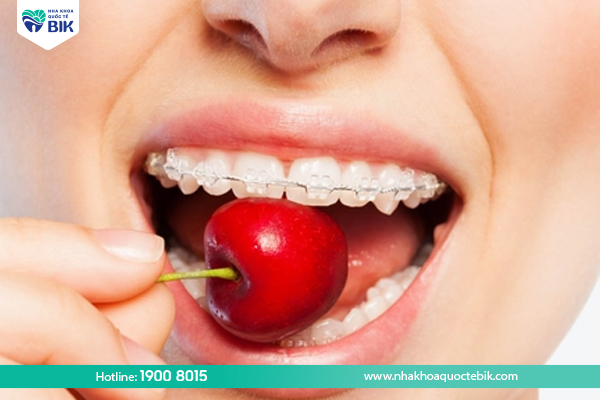
These problems not only affect appearance but also make people feel self-conscious in daily communication and affect the ability to chew. In addition to aesthetic changes, there are also changes in the ability to chew before and after braces:
- Improves impaired chewing function, making the eating process easier.
- Reduces the need to overuse jaw muscles, reduces joint pain and temporomandibular joint disorder.
- Reduces the risk of oral diseases, makes teeth cleaning easier and reduces the risk of lisping when speaking.
- Reduces the risk of diseases related to the digestive system because food is completely crushed.
Notes before and after braces
Before and after braces, there will be significant changes when you perform treatment at reputable facilities and comply with the oral care process before and after braces. Below are the issues you need to pay attention to and note:
Before braces
To make positive changes before and after braces, you need to go to dental clinics for advice and understand your oral problems. The doctor will then recommend the appropriate treatment depending on the condition of your teeth.
If you have problems with crooked teeth or other diseases, a dental X-ray will help determine the cause and decide on the appropriate orthodontic treatment.
Choose a reputable and quality clinic to have the best treatment plan. Prioritize choosing a doctor with high skills and professional knowledge. BIK International Dental Clinic is a reliable choice for you.
Before braces, treat oral problems such as gingivitis, tooth decay, periodontitis, etc. to ensure the braces process is quick and effective.
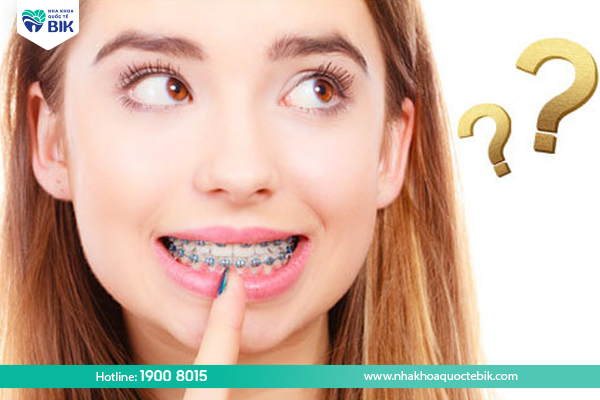
After braces
Once the doctor has adjusted the jaw to the correct position, this stage requires attention to the following:
- Follow the doctor’s instructions on diet, hygiene and dental care.
- Avoid eating foods that are too cold, too hot, sugary or too hard. Limit drinking alcohol, beer, and smoking because they can affect the braces process.
- Careful oral hygiene is important when wearing braces, using dental floss, mouthwash to remove plaque and regular check-ups as required to achieve the best results.
- Wear a retainer as instructed by your doctor to ensure the best results after braces.
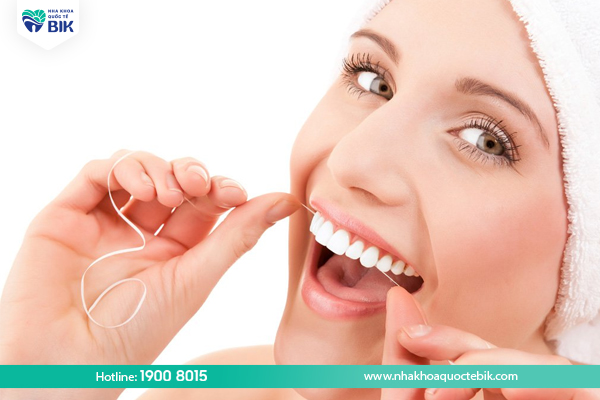
Image changes before and after braces
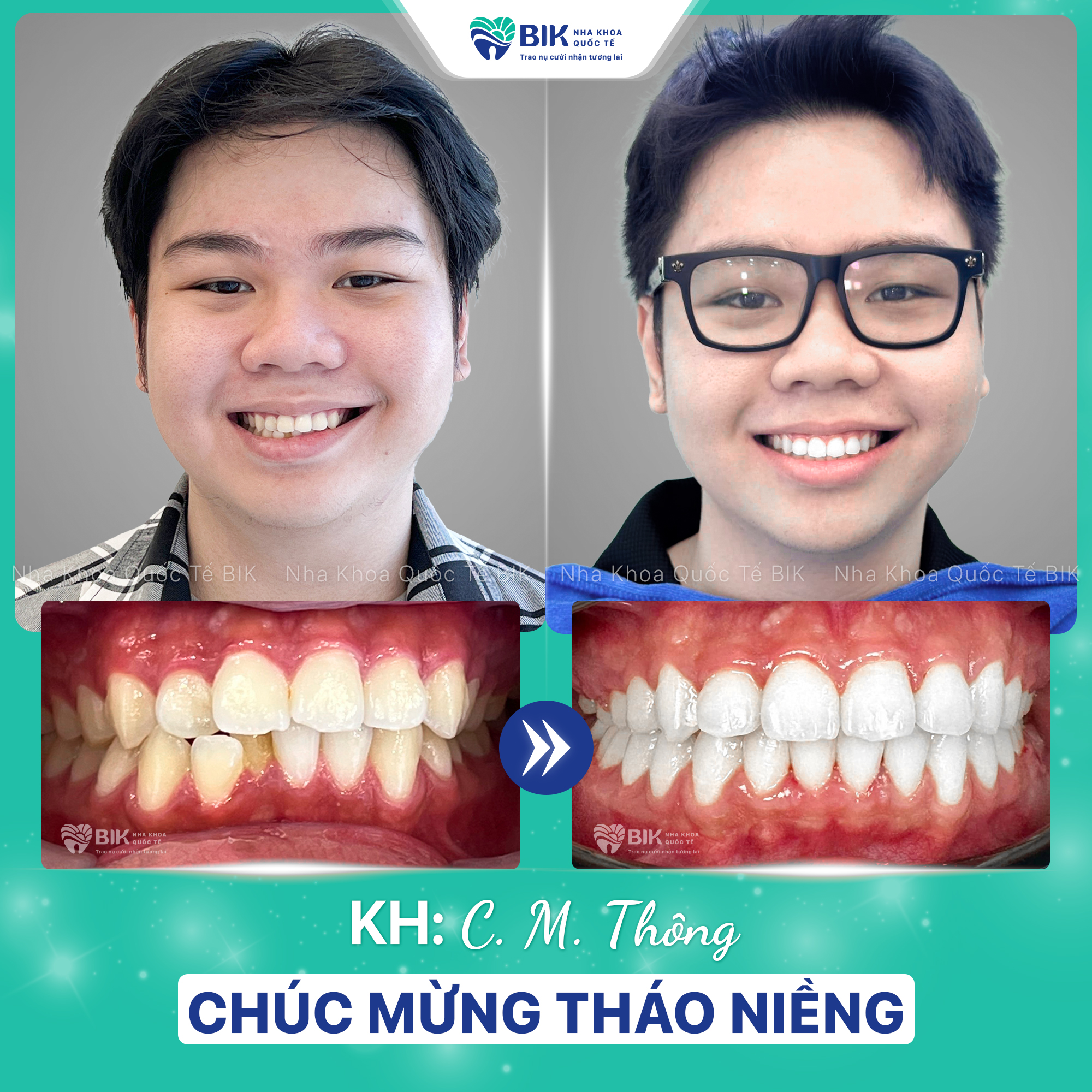
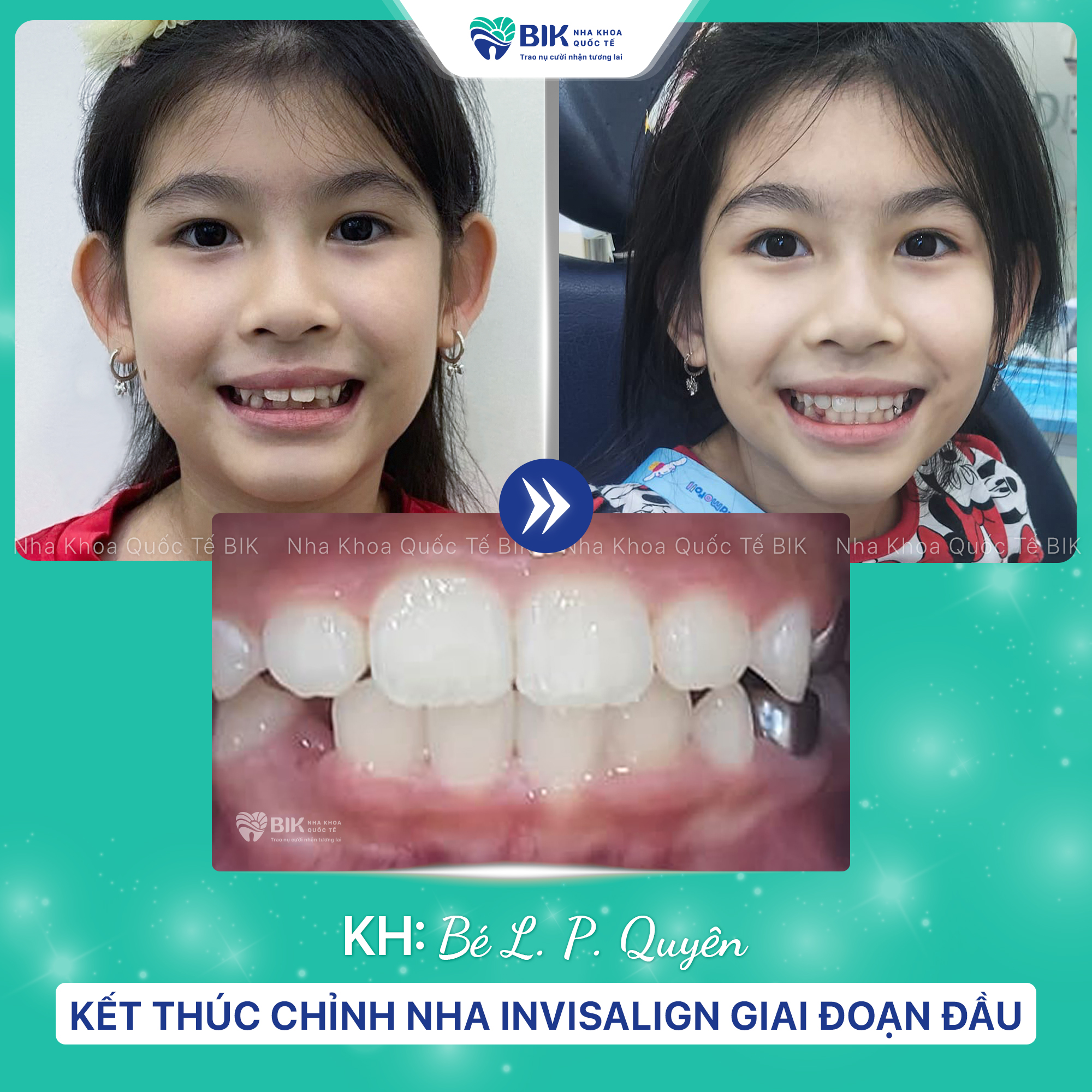
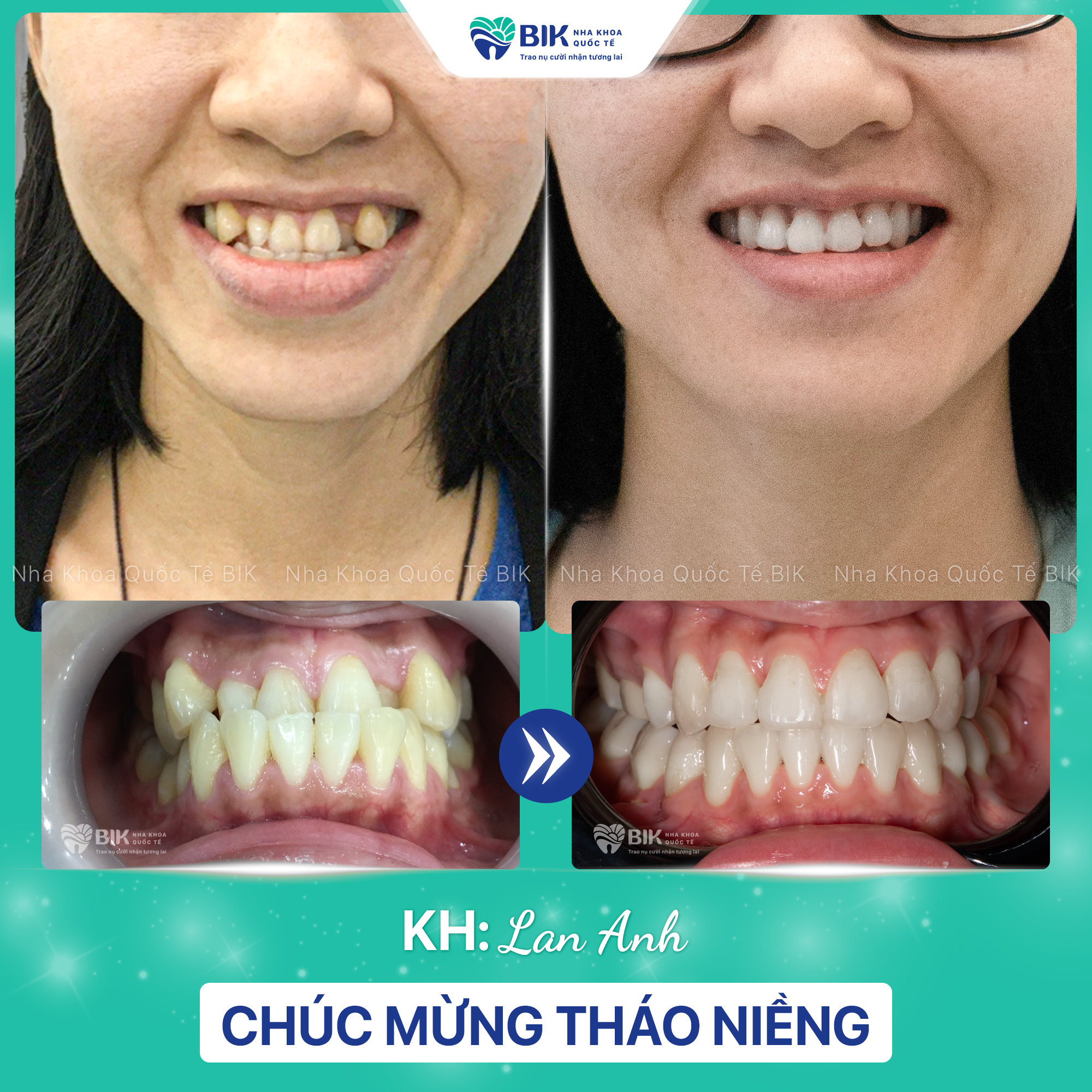
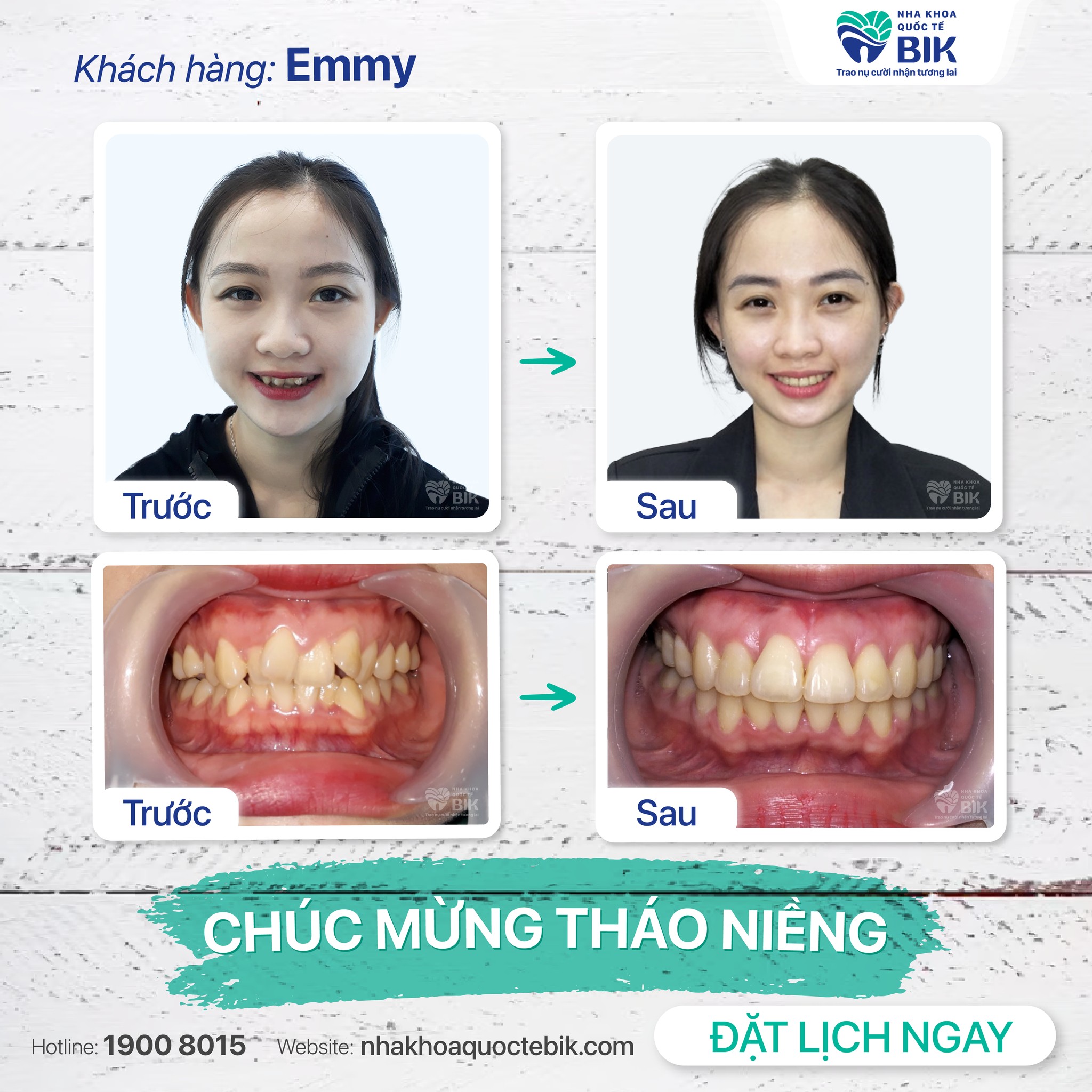
Before and after braces, you will feel the change in aesthetics and chewing ability. However, the level of improvement will depend on the initial condition of the teeth and the expertise of the doctor performing the treatment. So choose a reputable dental address for braces, in which BIK International Dental Clinic is the choice you can refer to.

